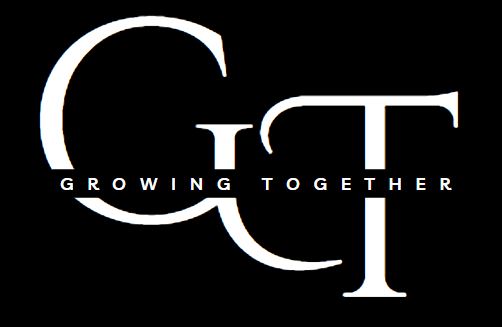Relationships are dynamic and ever evolving, requiring a certain level of adaptability to thrive. As individuals, we grow, change, and face new challenges throughout our lives, and these shifts impact our relationships. The ability to adapt within relationships is essential for building resilience, fostering understanding, and navigating the ups and downs that come with personal and shared transformations. In this article, we will explore the significance of adaptability within relationships, highlighting its benefits and offering practical insights on how to cultivate this important skill.
Understanding Adaptability in Relationships
Adaptability within relationships refers to the capacity to adjust, evolve, and respond to the changing needs and circumstances of both individuals involved. It involves being open to new perspectives, flexible in our expectations, and willing to embrace growth and change together. Just as life is full of unexpected twists and turns, relationships too require a willingness to adapt and navigate the various seasons of life.
Embracing Individual Growth
Individual growth is a natural and ongoing process, and it can significantly impact our relationships. As we embark on personal journeys of self-discovery, pursue new interests, or face challenges, our perspectives and priorities may shift. It is crucial to recognize that growth is not a threat to a relationship but rather an opportunity for individual and collective development. Embracing and supporting each other’s growth allows relationships to evolve and flourish.
Effective Communication and Active Listening
Adaptability in relationships is closely linked to effective communication and active listening. By openly expressing our thoughts, needs, and concerns, we create a space for understanding and collaboration. It is important to communicate openly and honestly about our evolving aspirations, goals, and desires, ensuring that our partners are aware of our changing needs. Equally important is active listening – genuinely hearing and understanding our partner’s thoughts, emotions, and aspirations. By fostering clear and compassionate communication, we lay the foundation for adaptability in our relationships.
Navigating Transitions and Life Changes
Life is filled with transitions and changes that impact our relationships. Whether it’s a career change, relocation, starting a family, or personal growth, these shifts can be both exciting and challenging. Adaptability is crucial during these times, as it requires a willingness to adjust expectations, roles, and routines. Navigating transitions together involves open and honest conversations, mutual support, and a shared commitment to growth and unity.
Respecting Individual Differences:
Adaptability also means respecting and embracing individual differences within a relationship. Each person brings their unique perspectives, values, and experiences, and these differences should be celebrated rather than seen as obstacles. Respecting each other’s differences fosters a sense of acceptance and appreciation, allowing for a more harmonious and adaptable relationship.
Flexibility in Problem-Solving
Challenges and conflicts are inevitable in any relationship. However, adaptability allows us to approach these obstacles with flexibility and creativity. Instead of becoming rigid or resistant, adaptable individuals seek solutions that accommodate both parties’ needs and aspirations. This flexibility enables relationships to grow stronger through problem-solving and compromise.
Supporting Each Other Through Change: Adaptability within relationships involves offering support and encouragement during times of change. Whether it’s a career transition, personal growth journey, or facing adversity, being there for each other is essential. Supporting one another through change requires empathy, active engagement, and a willingness to be flexible in our roles and expectations. By providing a safe and supportive space, we foster an environment where individuals can navigate change with confidence and security.
Cultivating Self-Awareness: Adaptability starts with self-awareness. Understanding our own strengths, weaknesses, triggers, and communication styles allows us to approach relationships with a more flexible mindset. Self-awareness helps us recognize when we may be resistant to change or struggling with adapting, enabling us to proactively address these challenges and work towards growth. Cultivating self-awareness through introspection, reflection, and seeking feedback from trusted individuals empowers us to become more adaptable within our relationships.
Embracing the Learning Journey:
Adaptability requires a willingness to embrace the learning journey within relationships. It involves being open to new ideas, perspectives, and experiences. By approaching each interaction as an opportunity to learn and grow, we foster an environment that encourages adaptability. Embracing the learning journey also includes acknowledging and learning from past mistakes or miscommunications, allowing us to continuously improve and evolve together.
Conclusion
Adaptability is a vital ingredient for thriving relationships. It empowers individuals to navigate change, support each other’s growth, and weather the inevitable challenges that come with personal and shared transformations. By embracing effective communication, respecting individual differences, navigating transitions together, and cultivating self-awareness, we can cultivate adaptability within our relationships. Remember, adaptability is not about losing oneself or compromising values but rather about embracing growth and change while fostering a deep connection and unity. So, let us embrace the power of adaptability and embark on a journey of resilience, understanding, and love within our relationships.
If you like what you have read, check out other articles on the website ThinkingDeeplySelf-Critically.com The site is designed to give us tools and techniques to help us become the best version of ourselves. There are four main categories on the site. The Foundation, Our Responsibility to Us, Our Responsibility to Others and Facilitating Crisis. We can also be found on Pinterest.


